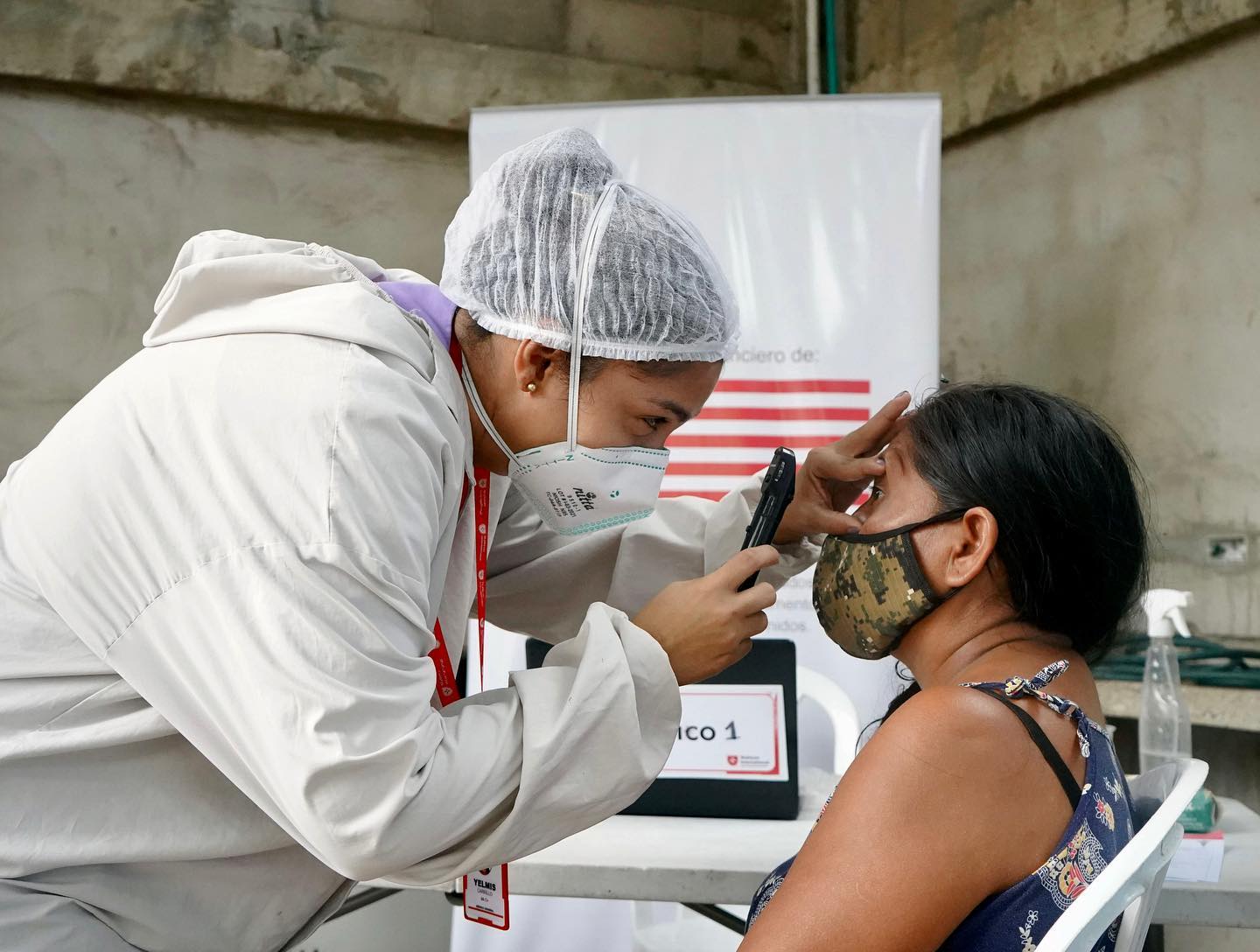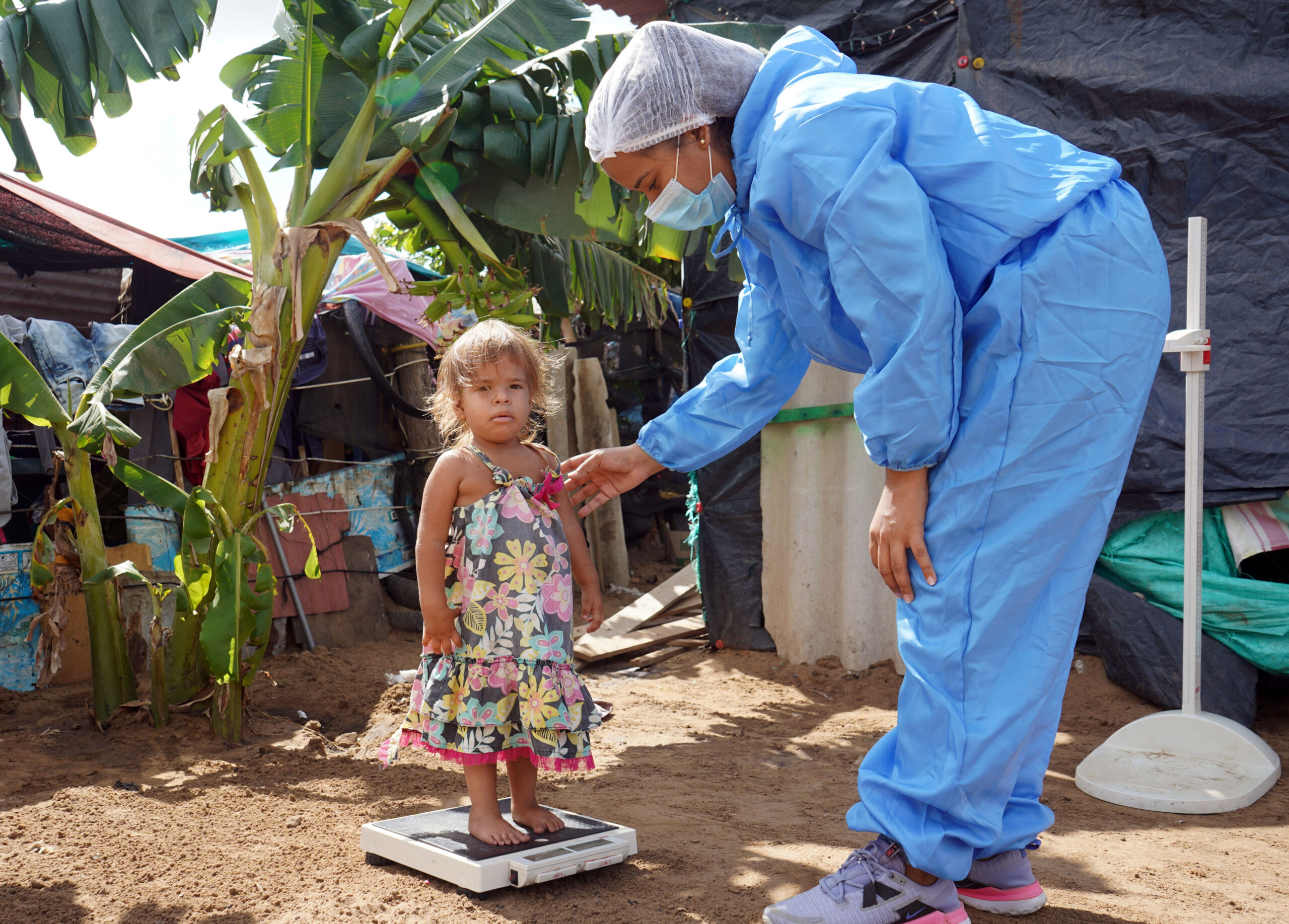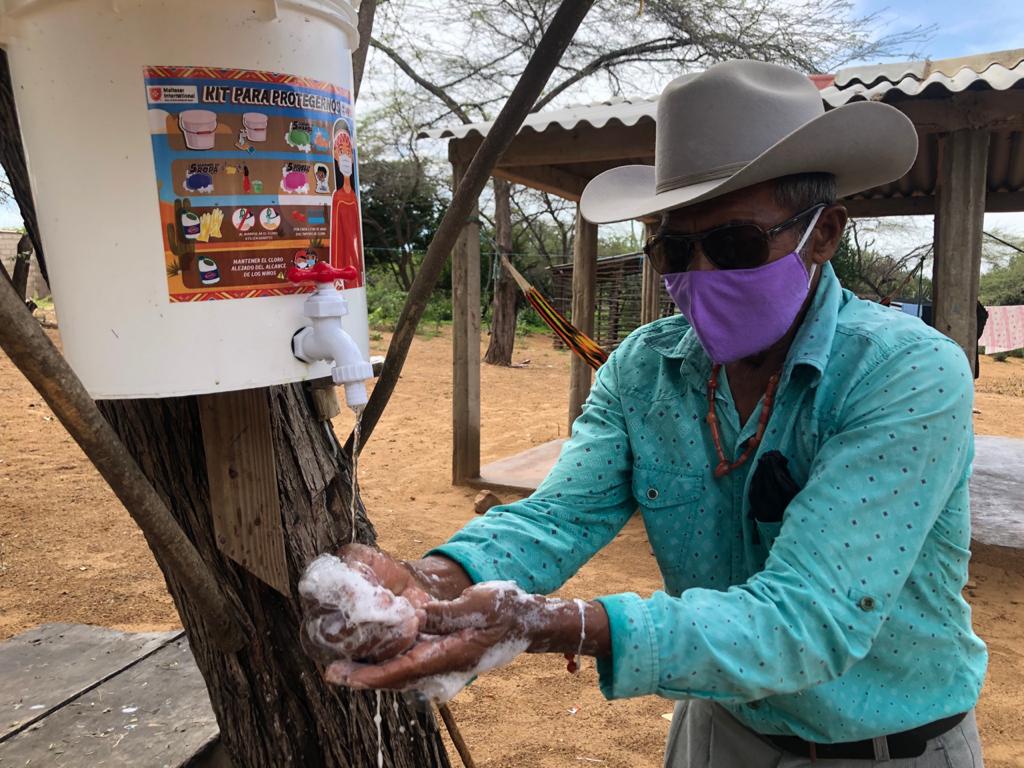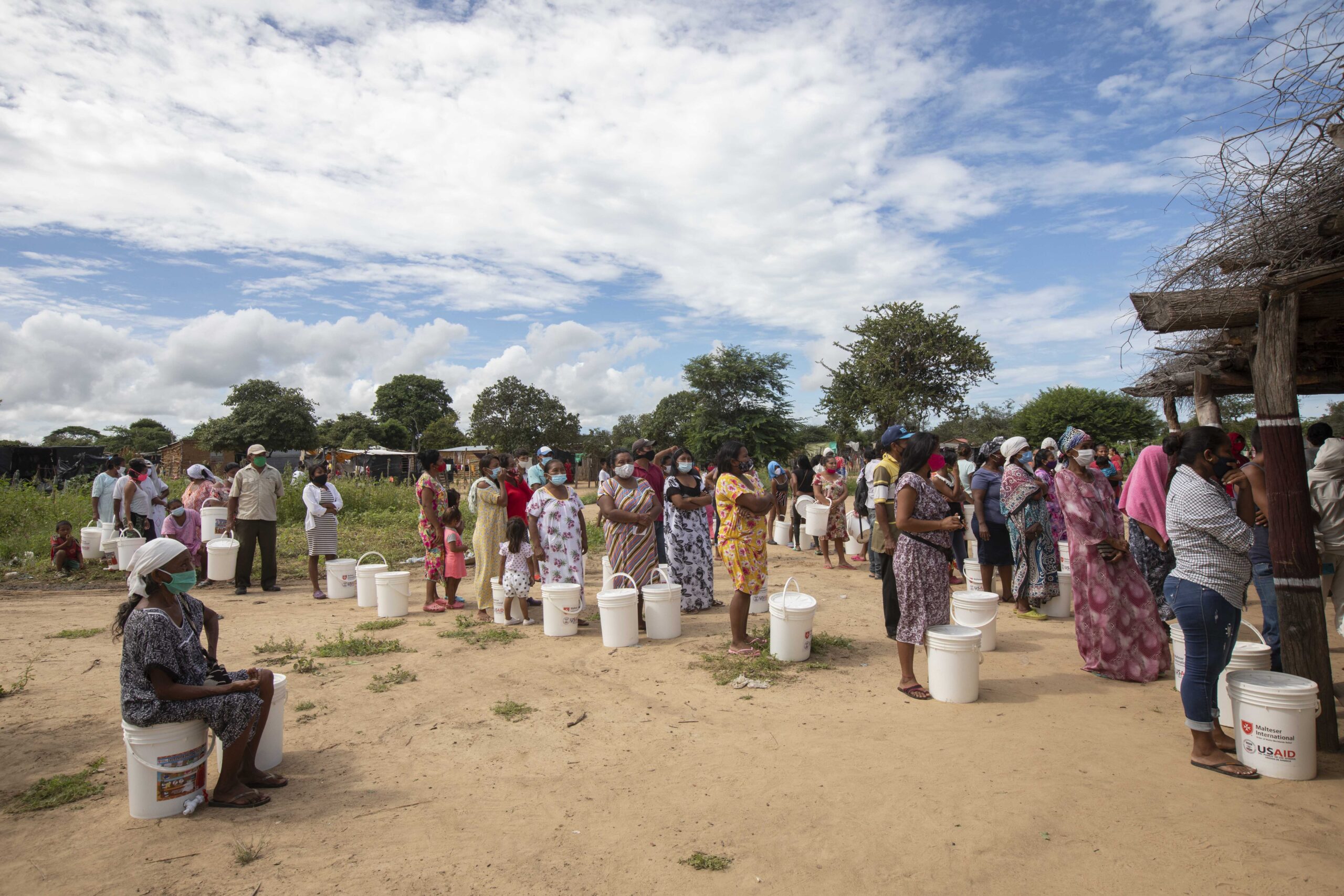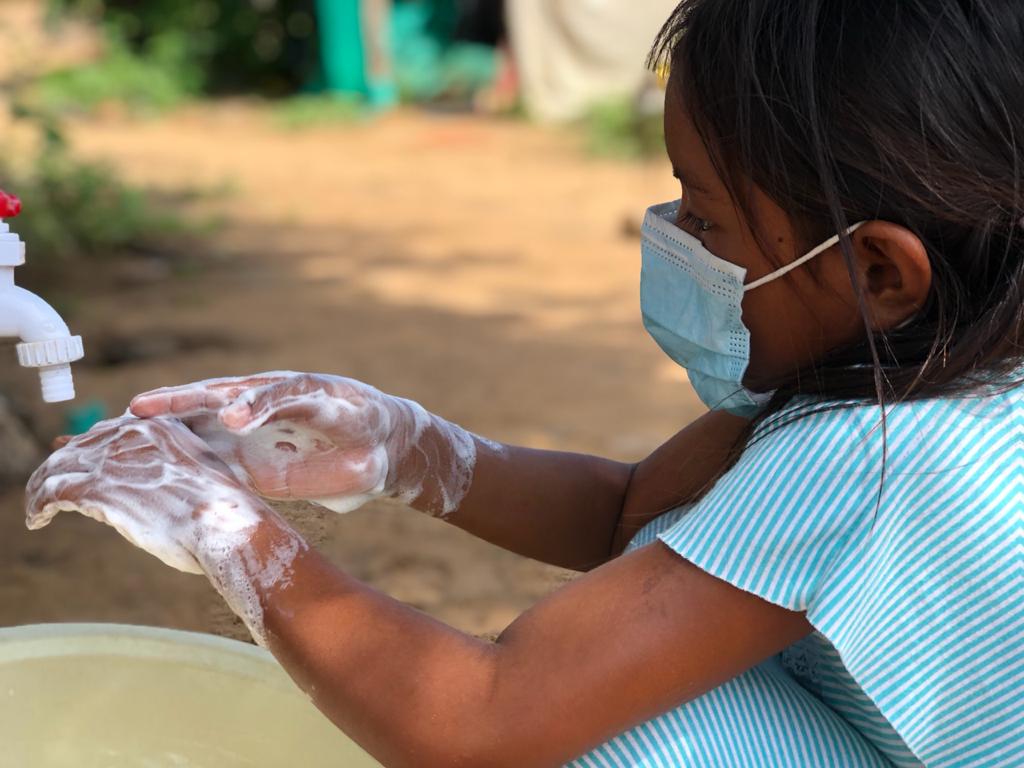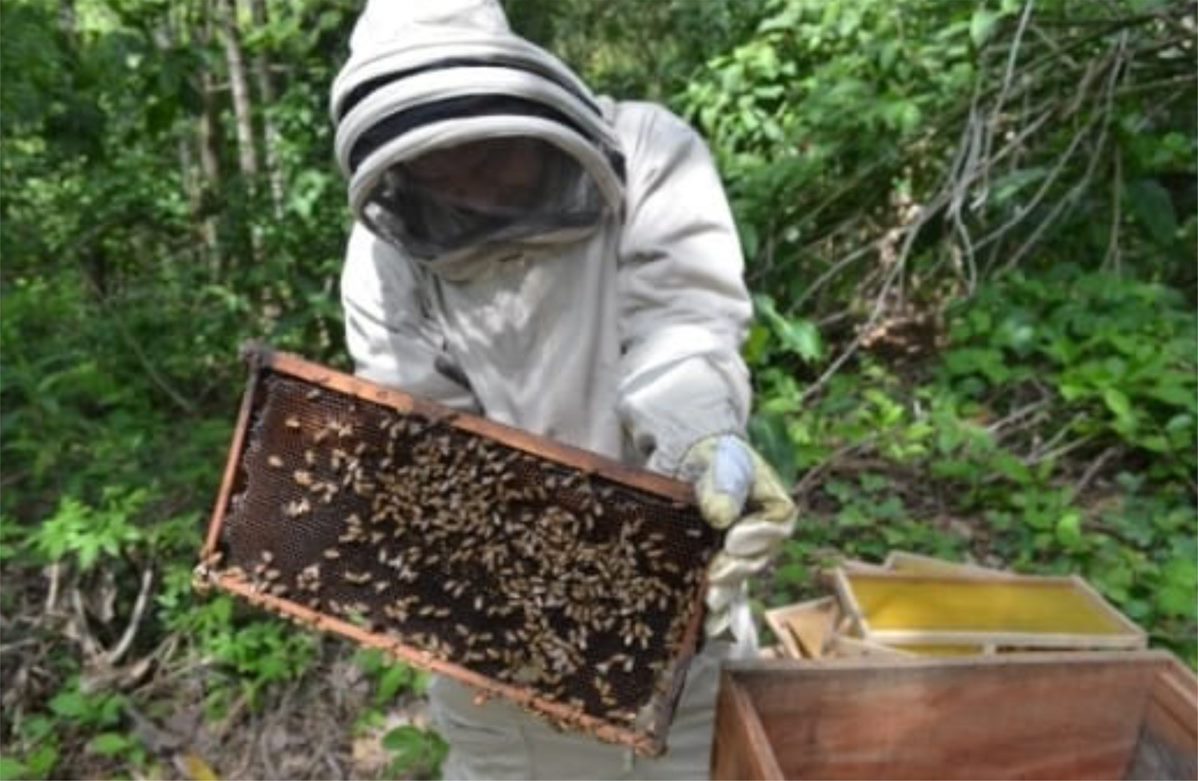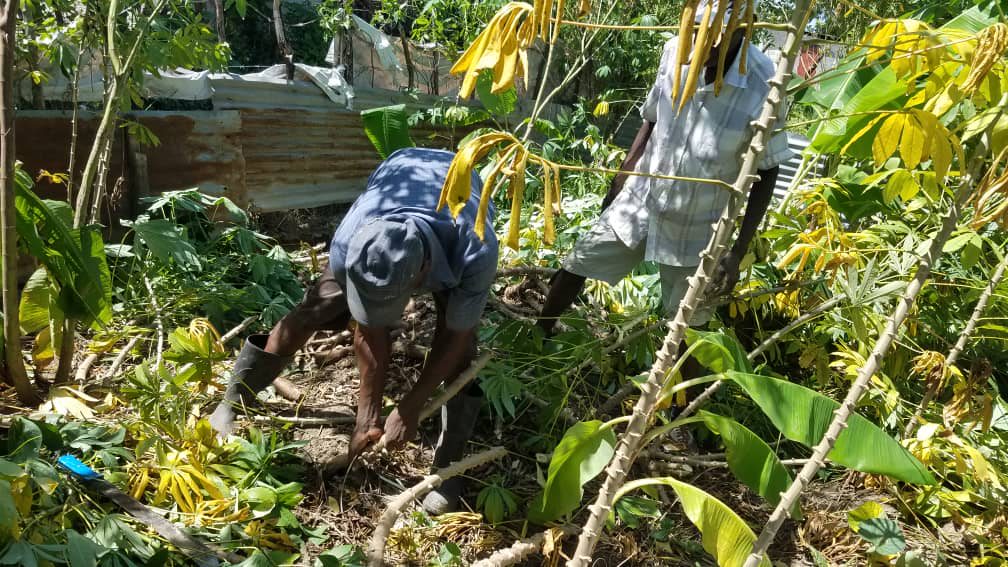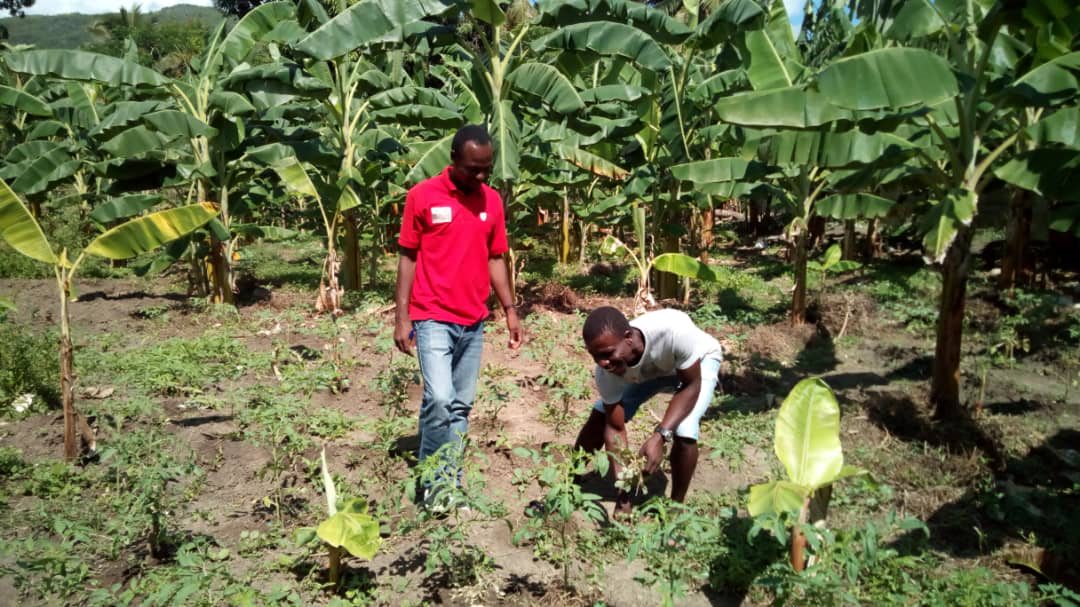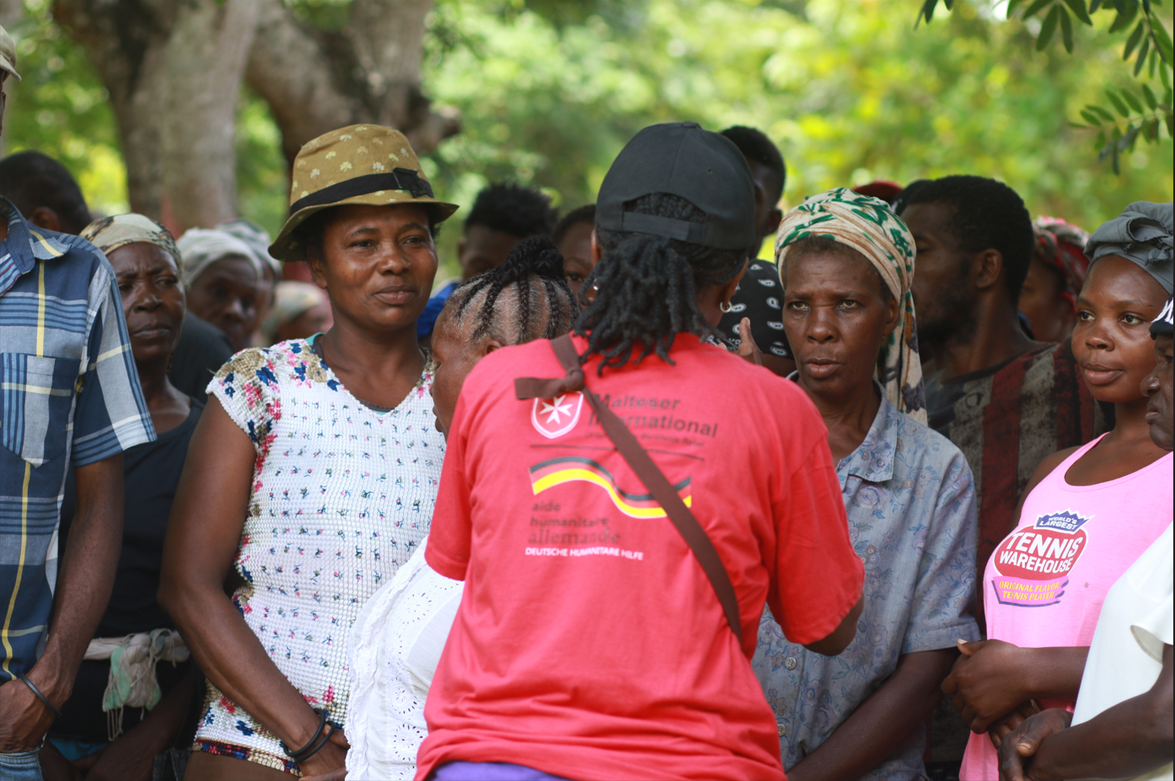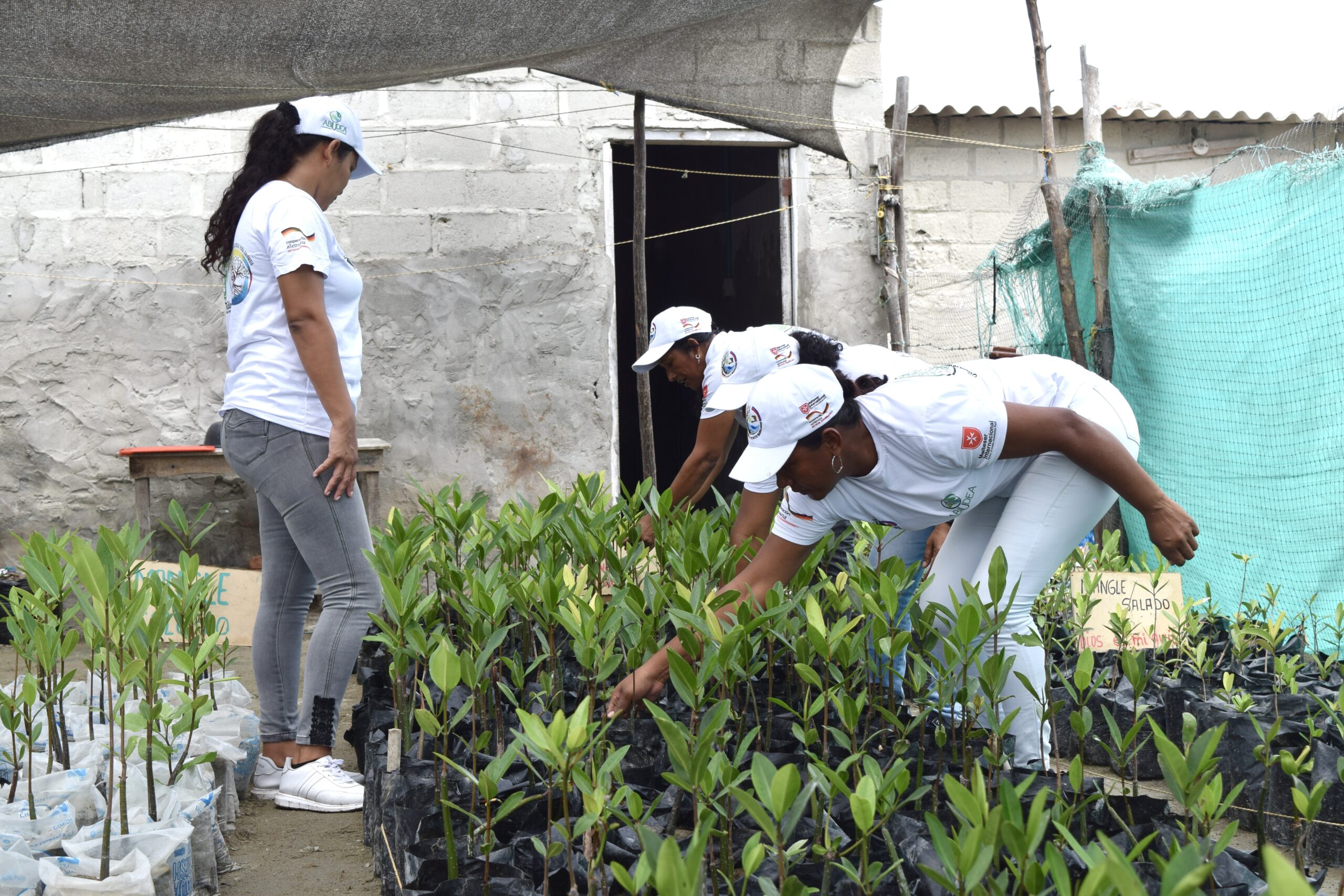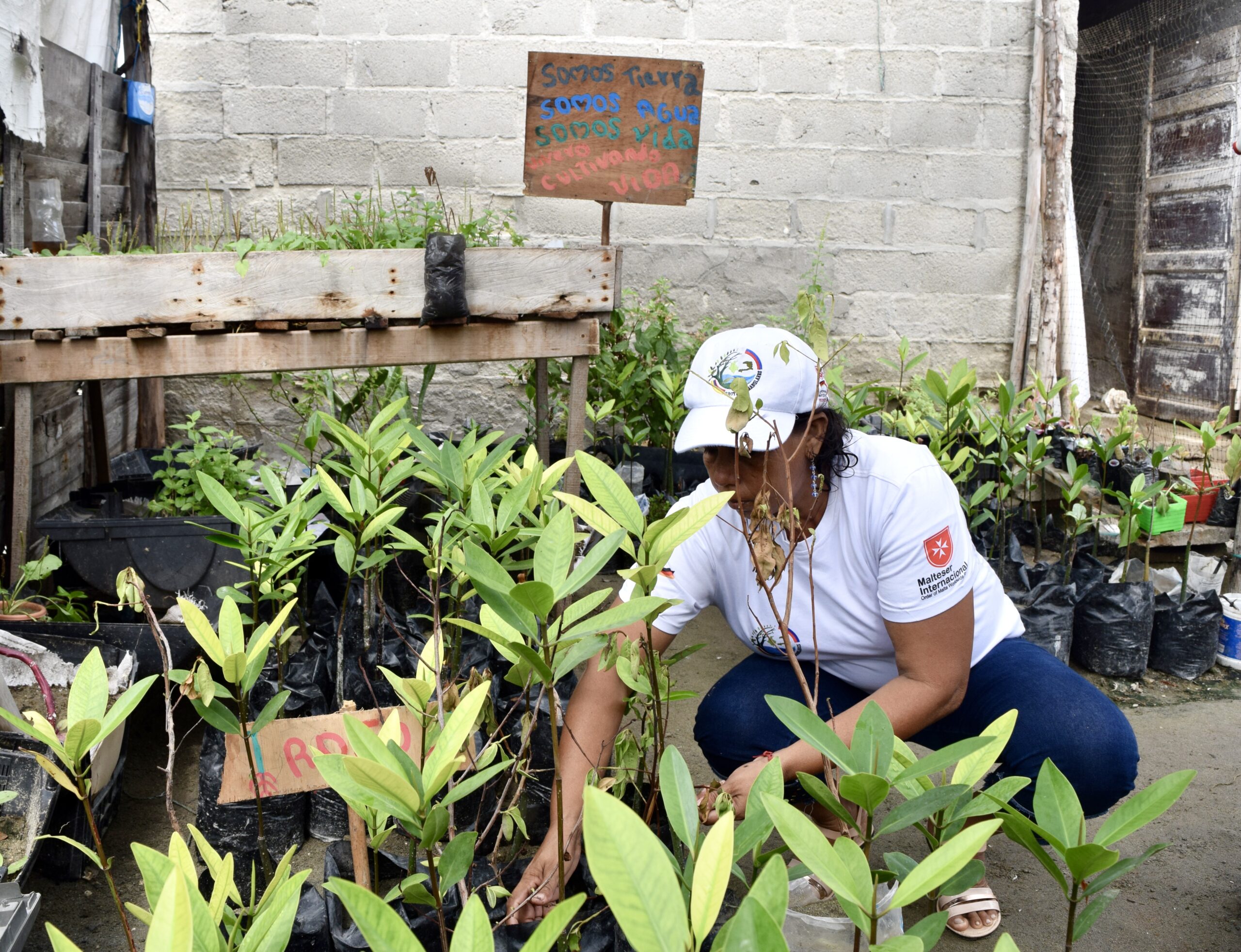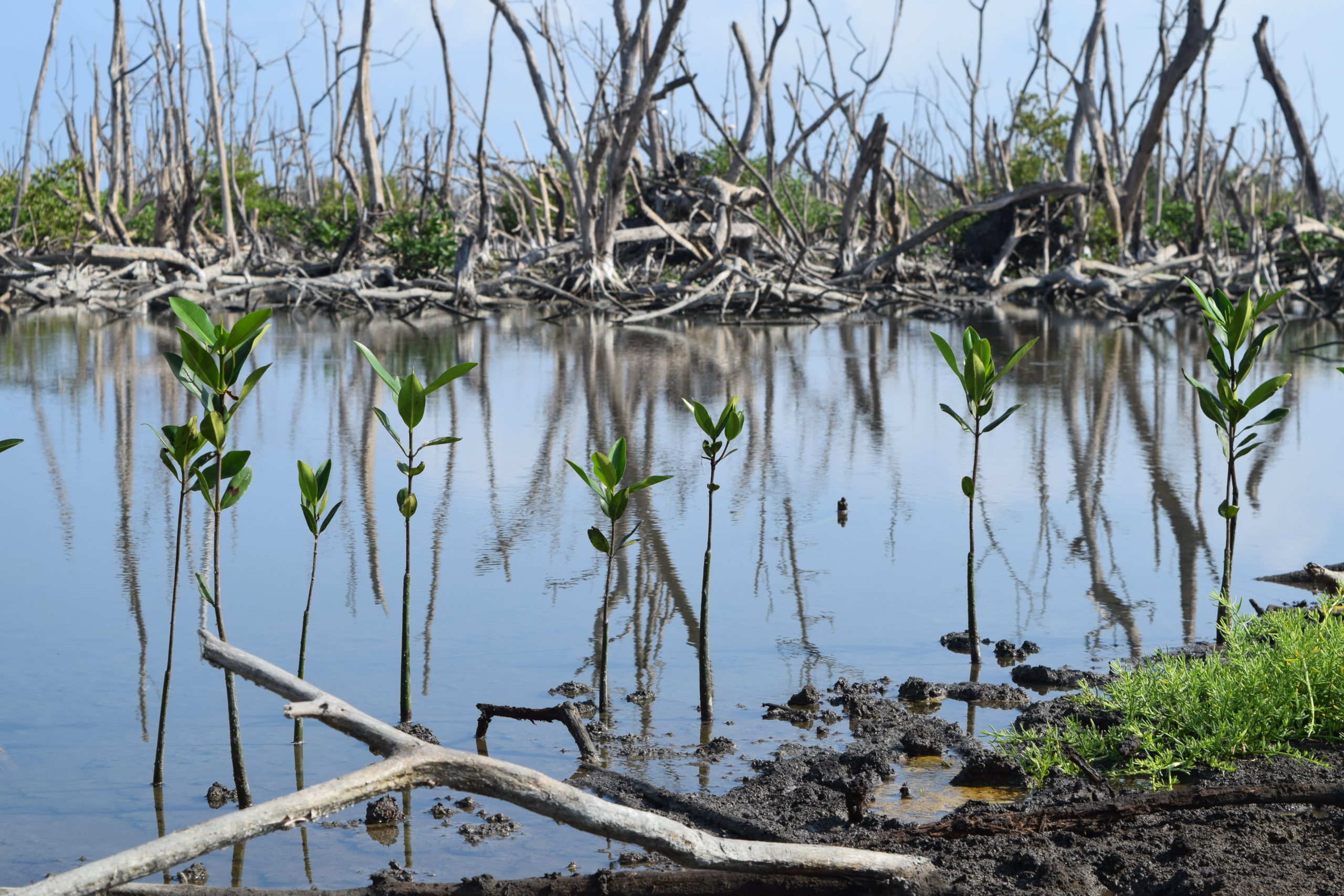Our Impact
Malteser International is the relief agency of the Catholic Sovereign Order of Malta and fulfils its mission to “serve the poor and the sick.” Since 1956, its core task has been to improve the health and well-being of suffering and displaced people around the world. Malteser International (MI) and Malteser International Americas (MI Americas) bring aid to people regardless of their religion, gender, background, or political convictions with over 140 projects in more than 35 countries annually.
MI Americas works every day to guarantee a life of dignity to vulnerable people in the Americas who are affected by crisis, migration, and malnutrition. Our approach is not just offering humanitarian assistance, but to build and transform the lives of those who need it most.
Our projects focus on 5 core areas, in alignment with the United Nations Sustainable Development Goals:
- Health
- Food and Nutrition Security
- Water, Sanitation and Hygiene (WASH)
- Emergency Response and Preparedness
- Environmental Resilience and Conservation
Health
According to the World Health Organization almost half of the world’s population does not benefit from complete coverage of essential health services. There are global health disparities and those affected by conflict generally lag furthest behind.
“Millions of people are still being pushed into extreme poverty because they have to pay for health care” World Health Organization
2021 Highlights:
- 11 Health facilities were supported, spread across Colombia, Venezuela and Haiti. For these facilities we provided medicine, medical equipment and food supplies.
- 109,814 medical consultations took place in our facilities or in the field, including treatments such as general consultations, and care for other chronic cases such as HIV, Tuberculosis and Malaria.
- 628 COVID-19 and 93 Flu vaccinations were provided to the homeless and elderly throughout the five boroughs of New York City and the Tri-State Area
- 8,323 mental health and psychosocial sessions were provided to support those experiencing trauma from a crisis, including the training of 17 MI staff and volunteers.
Water and Sanitation and Hygiene (WASH)
According to the United Nations 2 billion people lack access to safely managed drinking water, and more than 4.2 billion people lack safely managed sanitation. Lack of clean water also creates the conditions for the spread of water-borne diseases such as typhoid, cholera, and E.coli. Reliable access to safe water and sanitation not only saves lives but is also crucial to improving health and safety conditions, counteracting extreme poverty and increasing community resilience. Rural areas and the least developed countries are disproportionately impacted by a lack of WASH facilities and are at the highest risk of disease.
“1 in 3 people do not have access to safe drinking water” World Health Organization
We at Malteser International Americas aim to provide solutions to water scarcity and ensure equitable sanitation and hygiene in our core countries in Latin America and the Caribbean. We also aim to strengthen the participation of local communities in implementing sustainable water and sanitation management practices to ensure the long-lasting impact of our programs.
2021 Highlights:
- 4 facilities were aided with their COVID-19 preparedness and response, including quarantine spaces, isolation wards, Personal Protective Equipment (PPE) and staff training.
- 14 Indigenous Wayuu communities in Colombia were supported with COVID-19 preparedness and response, including PPE, hygiene practices and training.
- 708 beneficiaries in Haiti and Colombia received access to fresh water in their villages, through the creation of clean water tanks and hand-washing stations.
Food Security
Even before the outbreak of COVID-19, 2 billion people were suffering from food insecurity.
Food security can be defined as existing when “all people, at all times, have physical, social and economic access to sufficient, safe and nutritious food to meet dietary needs for a productive and healthy life” United Nations 1996 World Food Summit
With recent events such as the impact of inflation, a supply chain crisis, and man-made conflict, this trend went from concerning to life-threatening for billions. These new pressures are occurring at the same time as an increasingly strong impact of changing weather patterns, longer droughts, more intense and deadly flooding that jeopardize crop yields, and put the entirety of our food systems at risk.
Poor and marginalized groups are the first to suffer, particularly Indigenous communities, refugees, migrants, and children.
“Over 230 million children already suffering from malnutrition” UN SDG Report 2021
Food security means more than just the eradication of hunger, it means that people can eat a balanced diet from a regular and reliable source.
We at Malteser International Americas understand that small-scale food producers’ makeup most food sources in developing countries and they are at the most risk of reduced capacity due to any environmental or economic shocks. That is why our solution focuses on building resilience and sustainability in rural areas that need it most. We work with local inhabitants to grow their skills in agricultural best practices that are culturally sensitive, while enabling them to continue supplying the communities at risk.
2021 Highlights:
- 1,262 individuals supported through agricultural and gardening trainings in Haiti, including establishing:
- 214 family gardens
- 155 fruit gardens
- 893 vegetable gardens
- 915 individuals supported through husbandry training and livestock in Haiti, including distribution of:
- 150 goats
- 500 sheep
- 190 pigs
- 75 chickens
- 770 individuals supported in Colombia through the introduction of a collective of beehives to help pollinate local crops and re-populate the area with bees
- 75 families received monthly food supplies in Peru
Emergency Response and Preparedness
Millions of people around the world are threatened with the consequences of extreme natural disasters and armed conflict. In countries affected by earthquakes, flooding, drought and violence, infrastructure is often heavily damaged, while the population suffers from a lack of food, shelter, medical care and future prospects. Many live in profound poverty or find themselves forced from their homes to live as refugees, or displaced people in their own country.
Malteser International Americas seeks to provide rapid and effective help in acute crises. We offer emergency medical aid and distribute food and other essential survival materials. Even during the emergency response phase of a disaster, long-term considerations like ensuring a sustainable livelihood for the affected people are an important consideration. Strengthening the capacity of local people to help themselves is a central concern of our work.
The COVID-19 pandemic and Climate Crisis have increased global instability and the likelihood of new emergencies, as well as different ways in which we have to engage with our partners, as well as community leaders on the ground. In order to increase the resilience of local communities, we work with them to provide training in emergency response and build civil society structures to ensure they are better prepared.
We at Malteser International Americas pay special attention to vulnerable and marginalized groups such as indigenous people, children, the disabled and refugees. We pledge to be there when it counts, responding to those most in need.
“At the end of 2020, about 1% of the global population – 82.4 million people – had been forcibly displaced as a result of persecution, conflict or generalized violence” UN SDG 2021
2021 Highlights:
- 870 emergency kits distributed throughout Colombia and Peru – including food supplies and hygiene kits.
- 1,073 emergency kits distributed in the United States to households affected by Hurricane Eta, including cots, mattresses, utensils, diapers, masks, food supplies and hygiene kits.
- 3,640 beneficiaries of financial assistance in Haiti after the destruction of the August 2021 earthquakes, including a focus on female business owners, parents of malnourished children and individuals with disabilities
- 144 tarpaulins distributed for basic shelter in Nippes department.
- 9 health institutions were rebuilt or repaired after the impacts of hurricanes and earthquakes along with 80 homes.
- 53 individuals were trained on disaster risk reduction.
Environmental Resilience and Conservation
Our climate is changing, and the shifts these changes are creating have a disproportionately negative impact on vulnerable populations. It has a profound impact on their ability to access essential needs for survival such as access to nutritional food, livelihoods, clean water, and worsening the impact of natural and man-made disasters. Our projects aim to build resilience both in the battle against climate change (creation of carbon sinks like mangroves, mitigation of deforestation) but also to build communities through job creation and training.
“The global pandemic has laid bare humanity’s vulnerabilities. It has shown the world how much damage can be wreaked by a crisis that pales in comparison to a full-scale climate emergency. We must heed this wake-up call and seize the opportunity to rebuild in a way that will reduce emissions and increase resilience to climate change” UN SDG Report 2021
2021 Highlights:
- 5 mangrove nurseries rehabilitated.
- 31 awareness sessions around the importance of the mangroves for the local communities.
- 200 forest brigade members trained, first responders to respond to fires and educate their communities.

